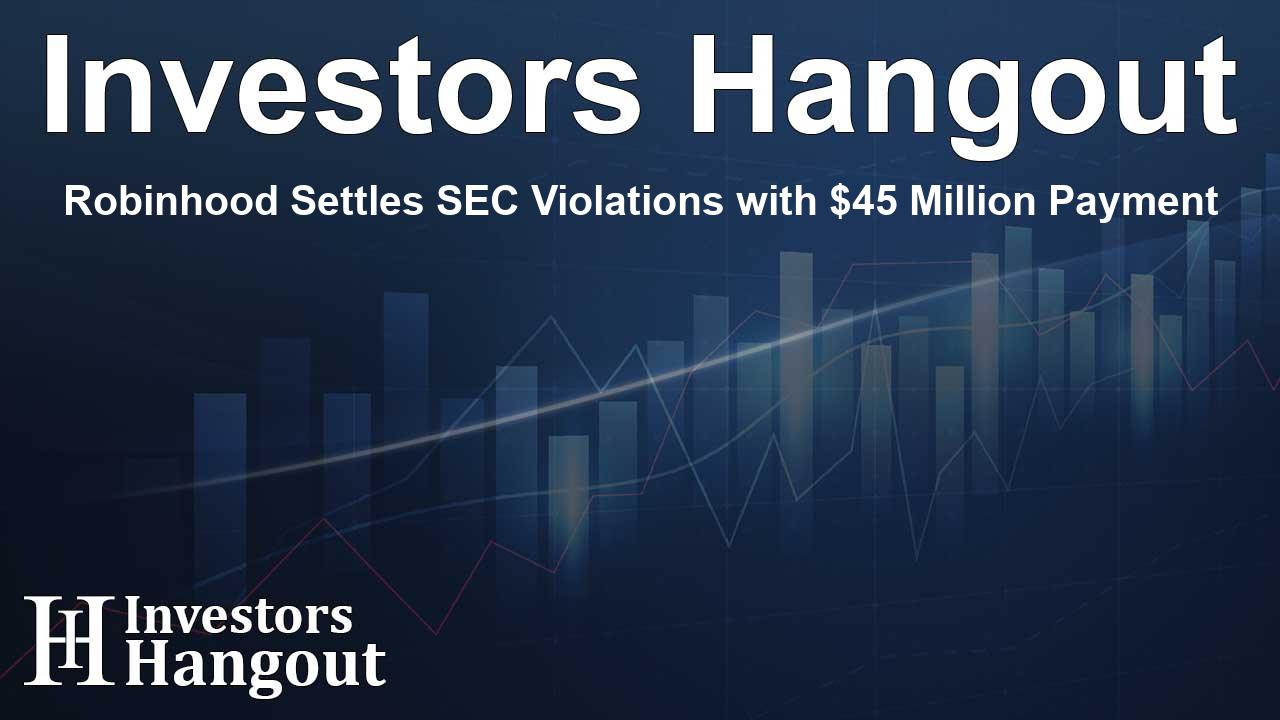Robinhood Settles SEC Violations with $45 Million Payment

Robinhood's Recent Settlement with the SEC
Online trading giant Robinhood Markets (NASDAQ: HOOD) is making headlines as it recently agreed to pay a substantial $45 million to settle charges brought forth by the U.S. Securities and Exchange Commission (SEC). These charges stemmed from failures in record keeping, trade reporting, and a slew of other regulatory violations.
Details of the SEC Charges
The SEC revealed that the issues were not isolated. In fact, two separate entities under the Robinhood umbrella were found to have consistently missed the mark in adhering to essential regulatory requirements. This included accurately reporting trading activities, timely filing of suspicious activity reports, maintaining necessary records of employee communications, and following established rules concerning short sales.
Regulatory Oversight and Compliance
The acting director of the SEC, Sanjay Wadhwa, commented on the situation, emphasizing the importance of strict compliance with regulations to protect investors and uphold market integrity. The findings underscore the critical nature of detailed record-keeping and the issues that can arise when companies do not fully comply with regulatory standards.
Robinhood's Response to the Settlement
In light of these allegations and the subsequent settlement, a representative from Robinhood expressed satisfaction with resolving the complications surrounding these issues. This settlement is seen as a step towards reinforcing its commitment to regulatory compliance and transparency in its operations.
Impact of the Settlement on Robinhood and Its Users
For Robinhood and its users, this settlement process might indicate a shift towards enhanced adherence to compliance protocols within the firm. For investors utilizing Robinhood for trading, it's essential to be aware of how these regulatory issues may influence the platform's operational practices moving forward.
Frequently Asked Questions
What prompted Robinhood's $45 million settlement?
The settlement was due to multiple violations concerning record keeping, trade reporting, and other regulatory obligations as identified by the SEC.
How will this settlement affect Robinhood's operations?
The settlement may lead to stricter compliance measures and protocols within Robinhood to prevent future violations and enhance transparency.
What are the main regulatory failures identified by the SEC?
The SEC highlighted failures in accurately reporting trading activities, submitting timely suspicious activity reports, and maintaining proper communication records.
How does this settlement impact Robinhood users?
Users should anticipate more robust compliance practices and improvements in the operational integrity of the trading platform as a result of this settlement.
Is Robinhood's financial health at risk due to this settlement?
The $45 million settlement represents a significant legal expenditure, but Robinhood's overall financial health and operational capacity should remain stable if managed effectively.
About The Author
Contact Caleb Price privately here. Or send an email with ATTN: Caleb Price as the subject to contact@investorshangout.com.
About Investors Hangout
Investors Hangout is a leading online stock forum for financial discussion and learning, offering a wide range of free tools and resources. It draws in traders of all levels, who exchange market knowledge, investigate trading tactics, and keep an eye on industry developments in real time. Featuring financial articles, stock message boards, quotes, charts, company profiles, and live news updates. Through cooperative learning and a wealth of informational resources, it helps users from novices creating their first portfolios to experts honing their techniques. Join Investors Hangout today: https://investorshangout.com/
The content of this article is based on factual, publicly available information and does not represent legal, financial, or investment advice. Investors Hangout does not offer financial advice, and the author is not a licensed financial advisor. Consult a qualified advisor before making any financial or investment decisions based on this article. This article should not be considered advice to purchase, sell, or hold any securities or other investments. If any of the material provided here is inaccurate, please contact us for corrections.
